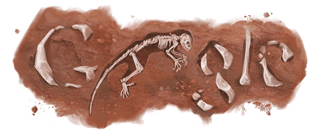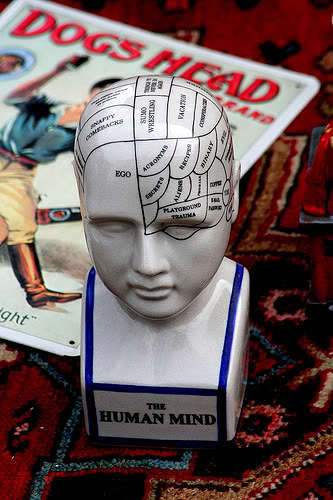 A research team led by psychologist Betsy Sparrow at Colombia University has identified a ‘new’ form of amnesia, and dubbed it the Google effect.
A research team led by psychologist Betsy Sparrow at Colombia University has identified a ‘new’ form of amnesia, and dubbed it the Google effect.
They are claiming – and being echoed by millions of copycat blog posts and news releases desperate for trending content – that internet search has changed the way we think.
It appears that all Betsy’s expensive team has done is tapped into a few current memes, picked a combination of phrases that would do well in the press and online, designed a hypothesis that would deliver exactly that, and then dressed it all up as original scientific research.
 The Google Effect is as Old as Words
The Google Effect is as Old as Words
Forget search engines, the so-called ‘Google effect’ started thousands of years ago with the first appearance of writing. Before the development of written languages, people remembered everything of any importance, and passed it on. Stories, facts, history, legends and all manner of common knowledge had to be memorised and communicated verbally to others.
Crucial information like which berries killed you, how to chat up a cave-girl from the next village, how to light a fire, and which mushrooms were best for parties were effectively passed on verbally as part of the collective folk memory.
Humanity’s dependence on memory has declined constantly since those times, in line with the invention and spread of other record-keeping and information retrieval methods such as writing – that old-fashioned pre-requisite of the internet, and the root cause of any human memory changes that are ascribed to technology.
Literacy is the Main Factor in Memory Evolution
As greater concentrations of people become literate, their society naturally loses some of its reliance on memory and verbal transmission. The explosion of literacy in the UK after the industrial revolution, and the widespread introduction of public libraries as part of the socialist & libertarian changes Britain experienced thanks to the worker’s movement all created the same phenomenon as Betsy Sparrow’s so-called ‘Google effect’.
Similar changes are happening today in developing countries around the world, and it is the mobile phone – not the internet – that is impacting communication, education and literacy for the worlds poorest.
Even as recently as the late 20th century, here in England we read more books, wrote more letters and had an amazing public library system to utilise for research. The internet, indexed by search engines, is just a faster library and mail system.
 Google Effect? What About the Mobile Effect?
Google Effect? What About the Mobile Effect?
If you are old enough, think back to life without a mobile phone. In those days most people had physical address books in their pockets, in which they also kept a hand-written record of people’s telephone numbers. Even the most expensive telephones didn’t have a useful number memory, so numbers had to be dialled in. As a result most people actually had dozens of numbers in their memory, and reserved their physical phonebook for more remote acquaintances and business contacts.
In contrast, how many telephone numbers can you remember today? The ones I remember are the same ones I knew in the late 1980’s; mum & dad, best and closest friends, and my girlfriend at the time. Mobiles have looked after my numbers ever since.
In fact this test feels quite spooky. I remember numbers for people that have not lived in that area for decades, and I know the numbers for friends that passed away just as long ago. How did you do?
It stands to reason that by relying on the digital memory of mobile phones, a portion of our top-level memory was re-wired and re-purposed as a result. What do you use those newly freed up memory cells for?
Personally, as an internet-based writer, the memory previously used for remembering important numbers is now kept busy keeping track of too many log-in details and commonly visited URL’s. These in turn connect me to every other bit of information in the world.
Like most people, and as confirmed by the Colombia University study, I do largely remember where on the internet the useful things are; and which sources I trust the most.
Just like I did with the shelves in the library.





![AI Overviews: We Reverse-Engineered Them So You Don't Have To [+ What You Need To Do Next]](https://www.searchenginejournal.com/wp-content/uploads/2025/04/sidebar1x-455.png)